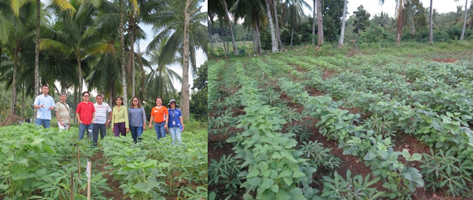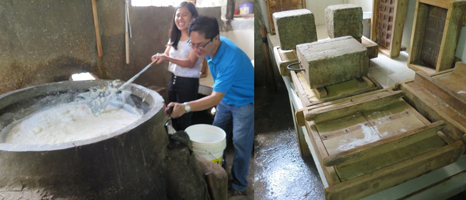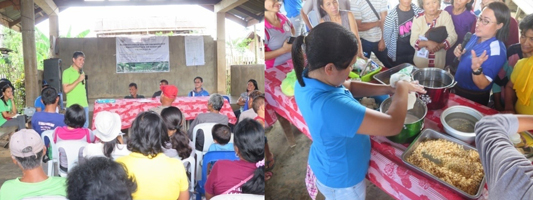
In a bid to strengthen the country’s soybean industry, the Department of Science and Technology-Philippine Council for Agriculture, Aquatic and Natural Resources Research and Development funded the implementation of the Soybean Research and Development (R&D) Program.
The program consists of four projects: Analysis of Supply Chain and Competitiveness, Productivity and Technical Efficiency of Soybean as Food (Project 1); Soybean for Higher Income and Enhanced Soil Health under Different Cropping Systems (Project 2); Enhancing the Sustainability of Informal Soybean Seed Sector (Project 3); and Soybean Variety Development for Large Seed Size, Higher Yields and Enhanced Functional Properties (Project 4).
In the first year of its implementation, the program kicked off several activities including a semi-annual review and field visits in regions 10, 11, and 13.
The activities were conducted by the monitoring and evaluation (M&E) team of the Crops Research Division-DOST-PCAARRD.
 Survey and interviews with soybean farmers in regions 10, 11, and 13 were conducted by the Project 1 R&D team in conjunction with Project 3.
Survey and interviews with soybean farmers in regions 10, 11, and 13 were conducted by the Project 1 R&D team in conjunction with Project 3.
The two projects aim to improve the current seed enhancement mechanisms and the overall soybean supply chain in the Philippines.
Farmers were asked about their current practices in seed postharvest handling and packaging.
Meanwhile, under Project 2, the team visited project sites in Mindanao to check the status of the trials. The project endeavors to determine soybean’s profitability and optimal productivity under different multiple cropping systems with high-value crops. On-station trials on sequential cropping of corn and rice, and intercropping of cassava with soybean were already in place. The impact of these crops on soil health is also being monitored through field evaluation trials and soil laboratory testing.
For Project 4, the team reported that the germplasm collection and observational trials on seed increase in seed accessions at the University of the Philippines – Institute of Plant Breeding (UPLB-IPB) were almost complete. This component intends to develop high-yielding soybean varieties that are large-seeded and ideal for processing, as well as adaptable to the agro-climatic condition of the target regions. The establishment of on-station trials for Region 13 is scheduled in March 2019.
 Aside from the field visits, the M&E team also learned the processing of soybean in a small-scale tofu processing facility in Davao, and in the Farmer’s Field Day on the Technology Demonstration on Soybean Production in Agusan Del Sur.
Aside from the field visits, the M&E team also learned the processing of soybean in a small-scale tofu processing facility in Davao, and in the Farmer’s Field Day on the Technology Demonstration on Soybean Production in Agusan Del Sur.
The production of “Tudela” soybean, or the black soybean variety that is widespread and commonly grown in Agusan del Sur was featured in the field day. A technology demonstration on soybean production, on the other hand, was facilitated by the Department of Agriculture – Regional Field Office (DA-RFO) 13. The DA staff showed farmers how to process soy milk, and make soybean curd or “taho,” tofu, and hotcakes. The activity encouraged the farmers to do other value-adding activities to increase their income and to maximize the health benefits of soybean.
DOST-PCAARRD, together with its implementing agencies namely, University of the Philippines Los Baños (UPLB), University of the Philippines Mindanao (UPM), Central Luzon State University (CLSU), and DA-RFOs 2, 10, 11, and 13, show their steadfast commitment in delivering project outputs, all for the strengthening of the soybean industry in the Philippines.
